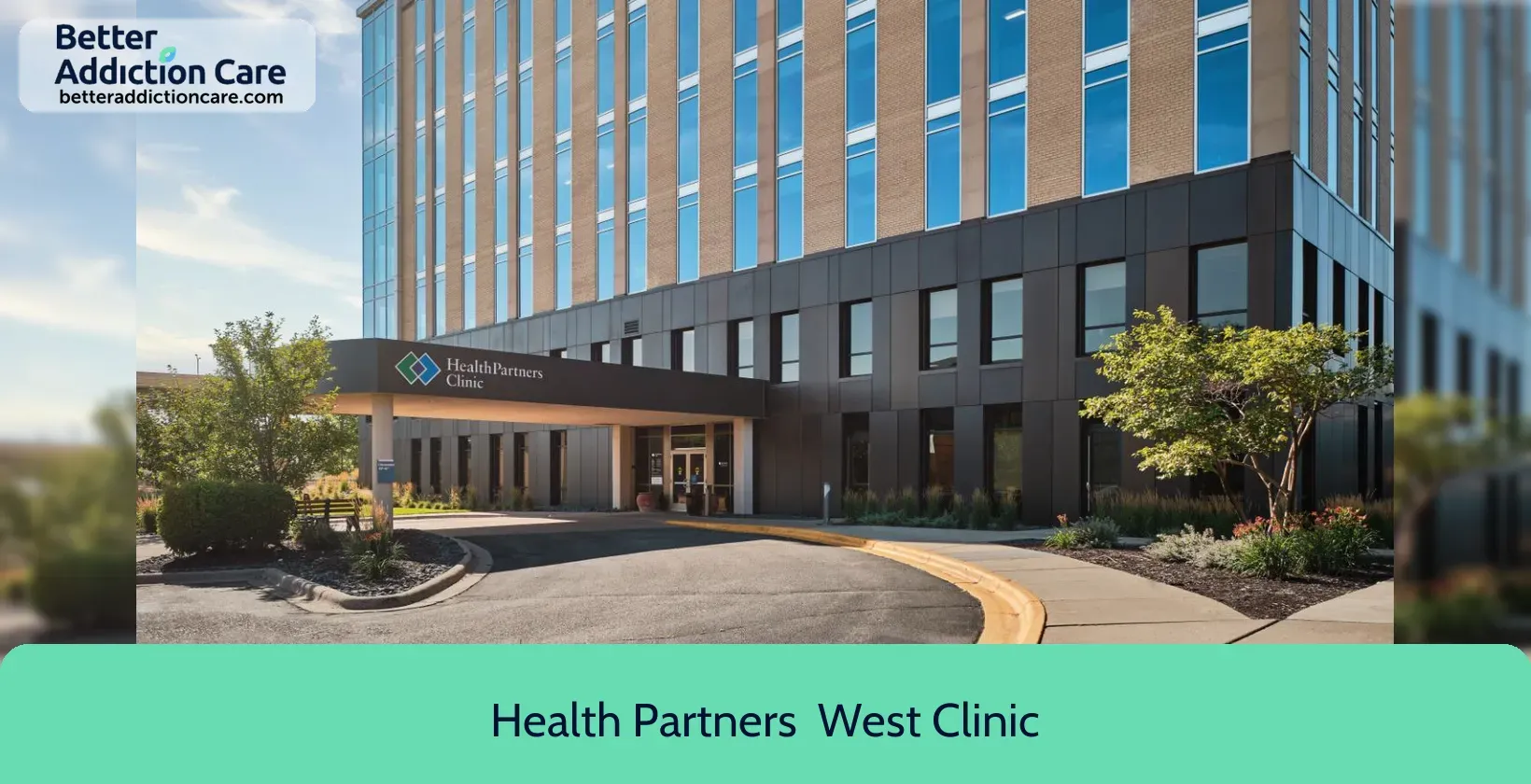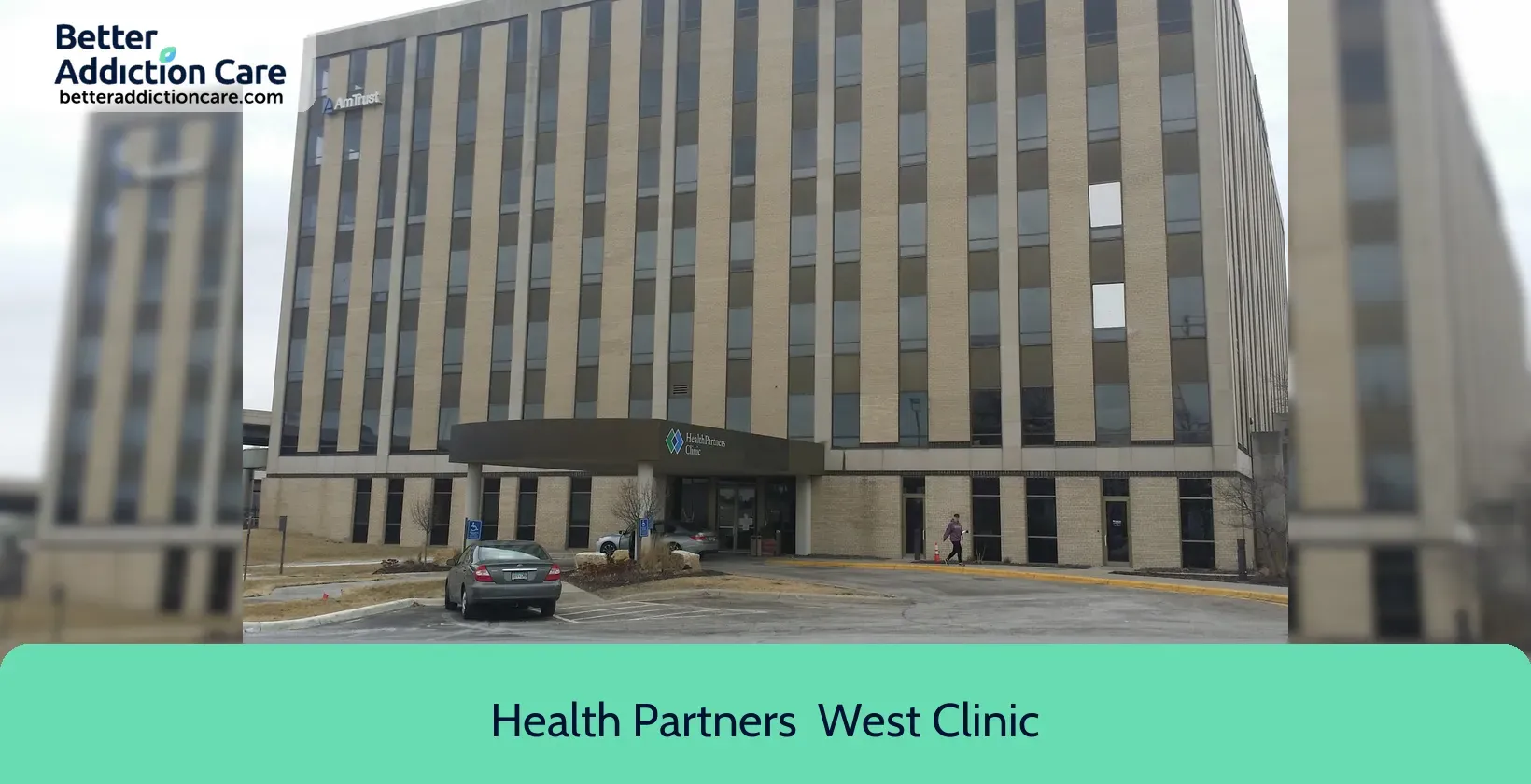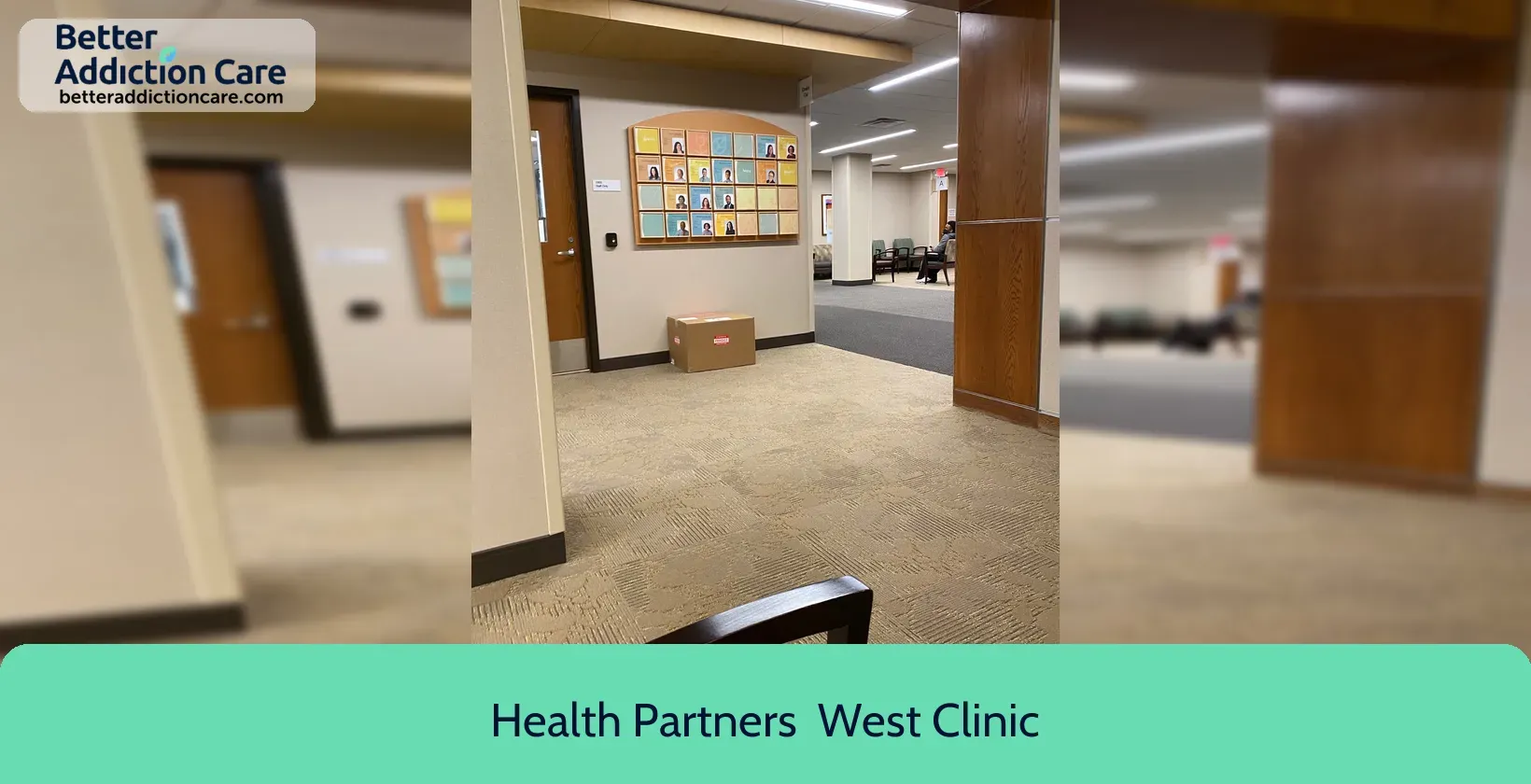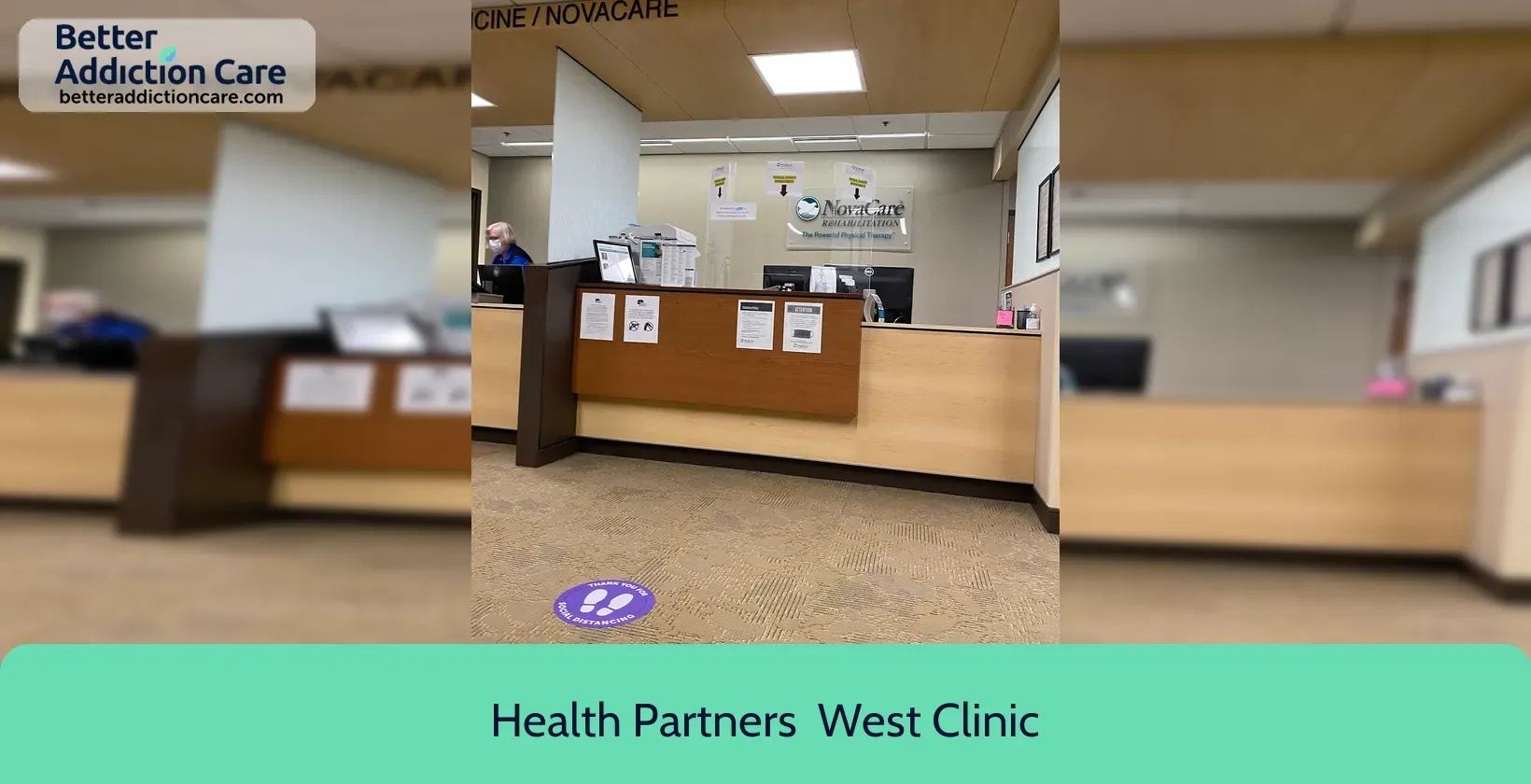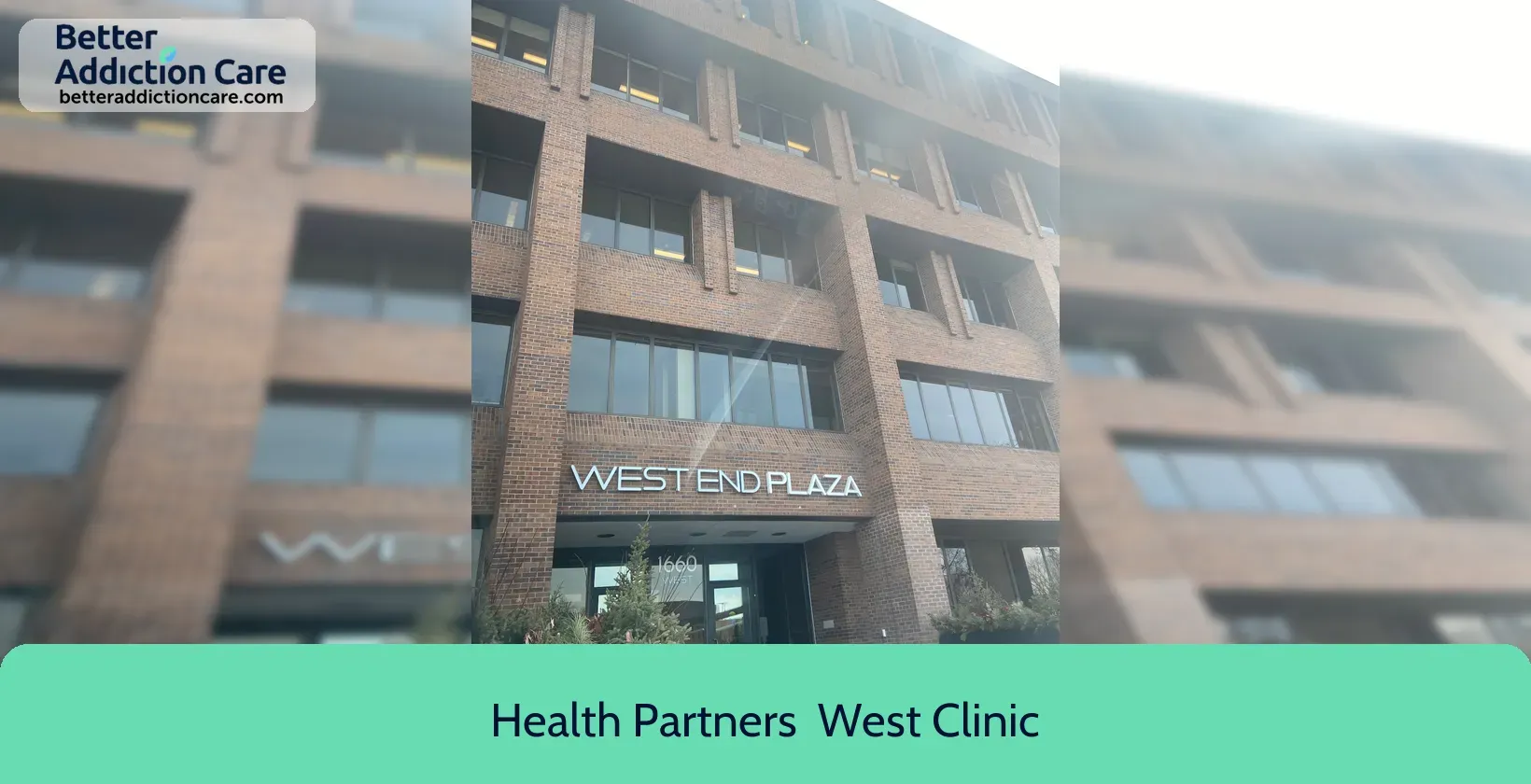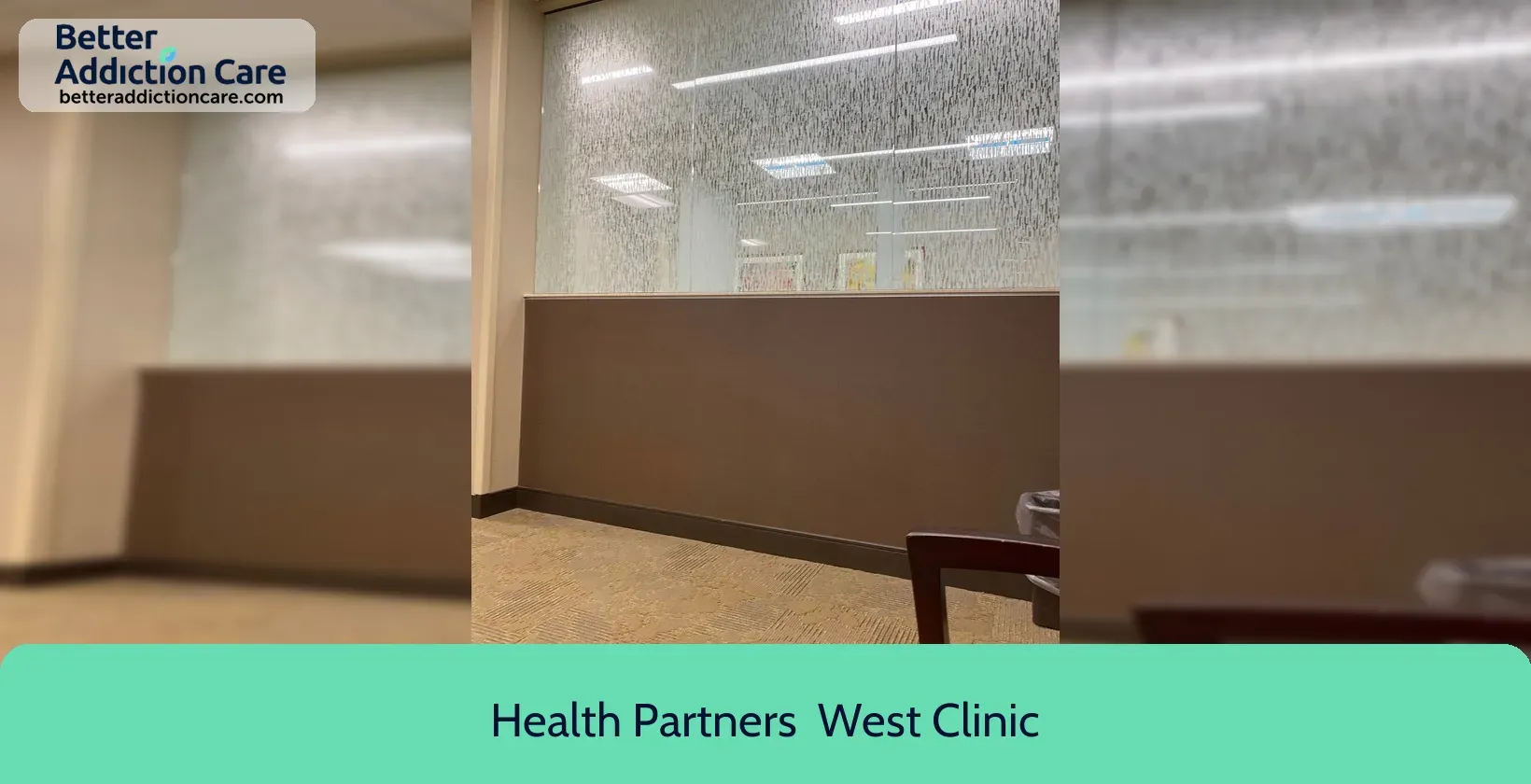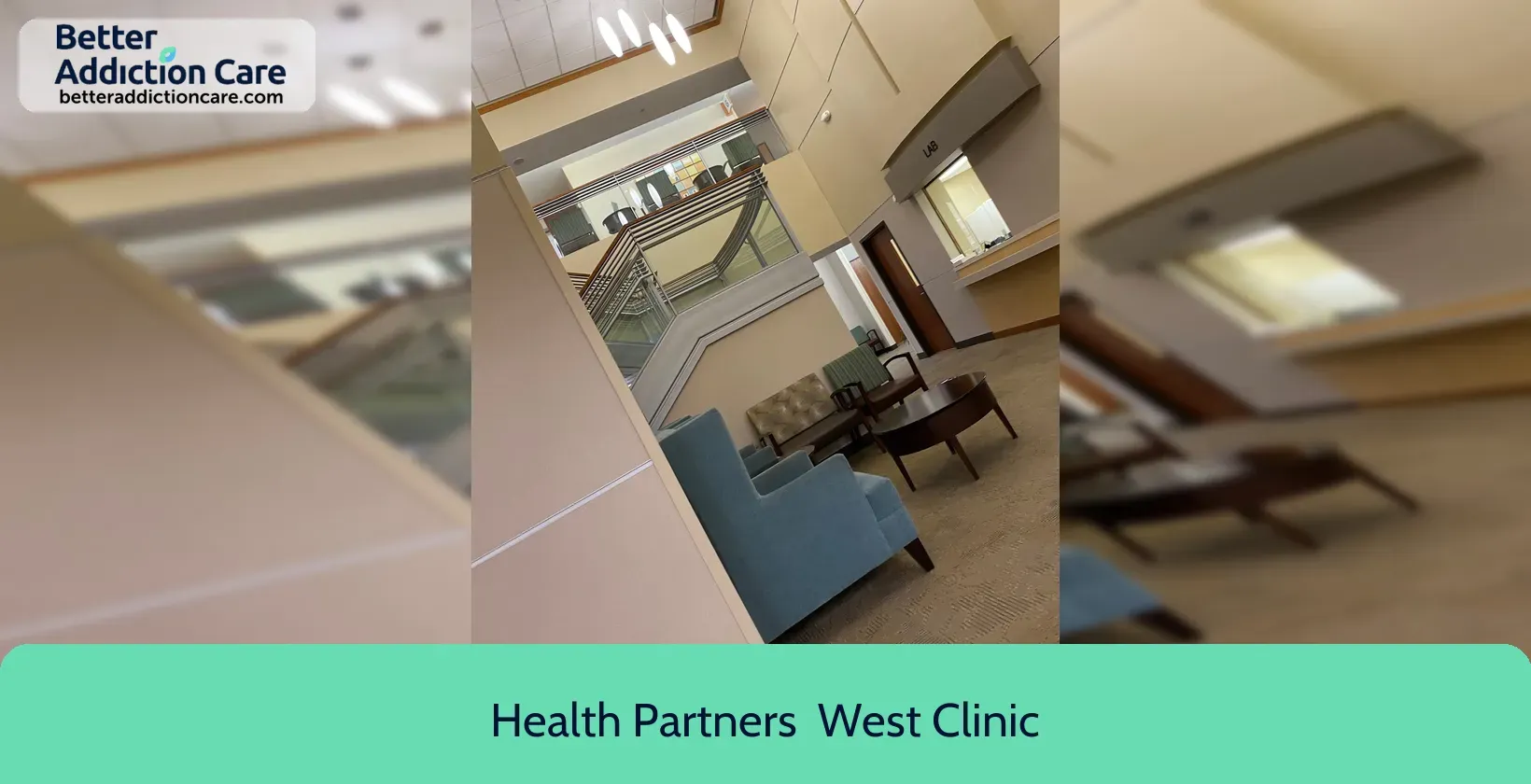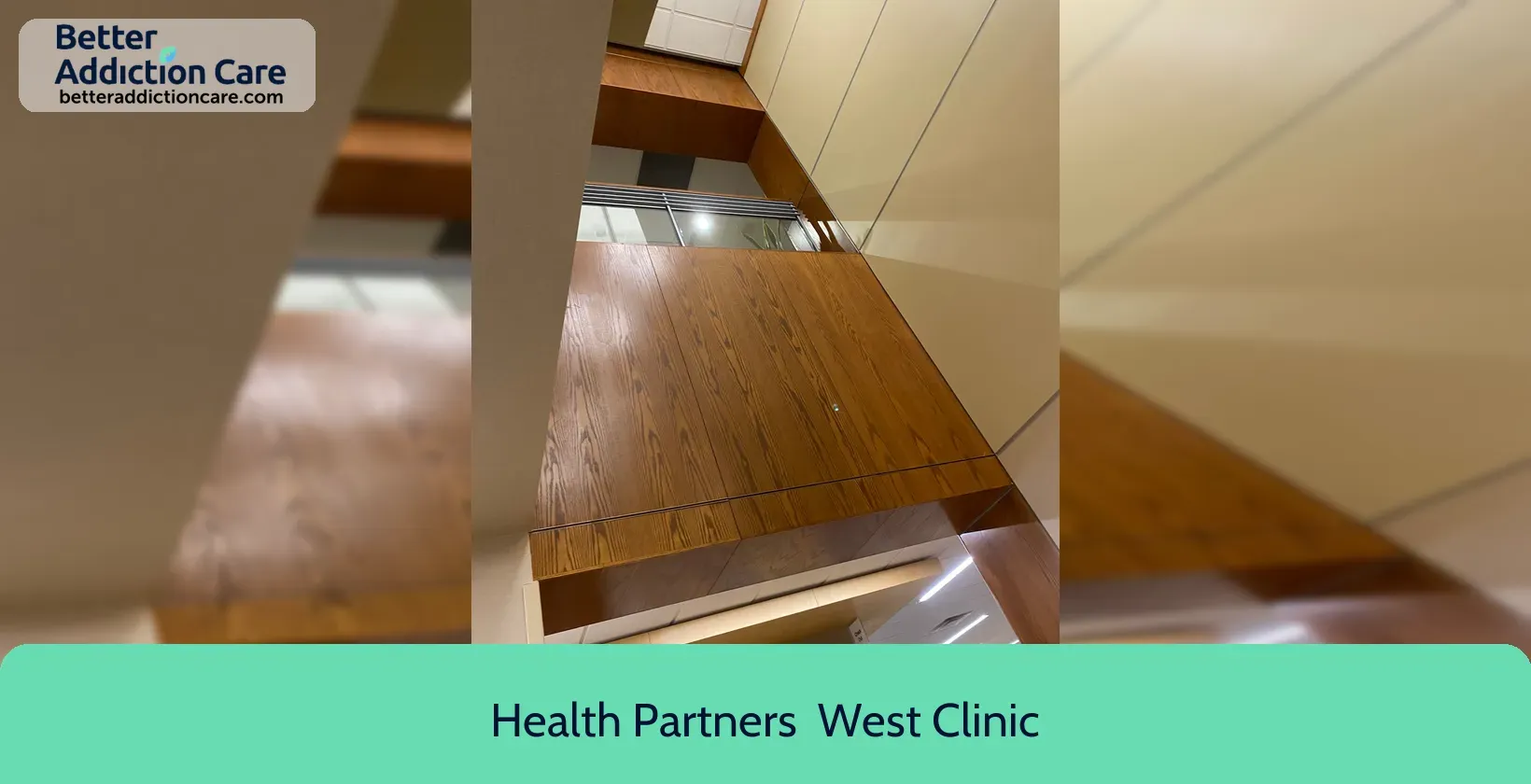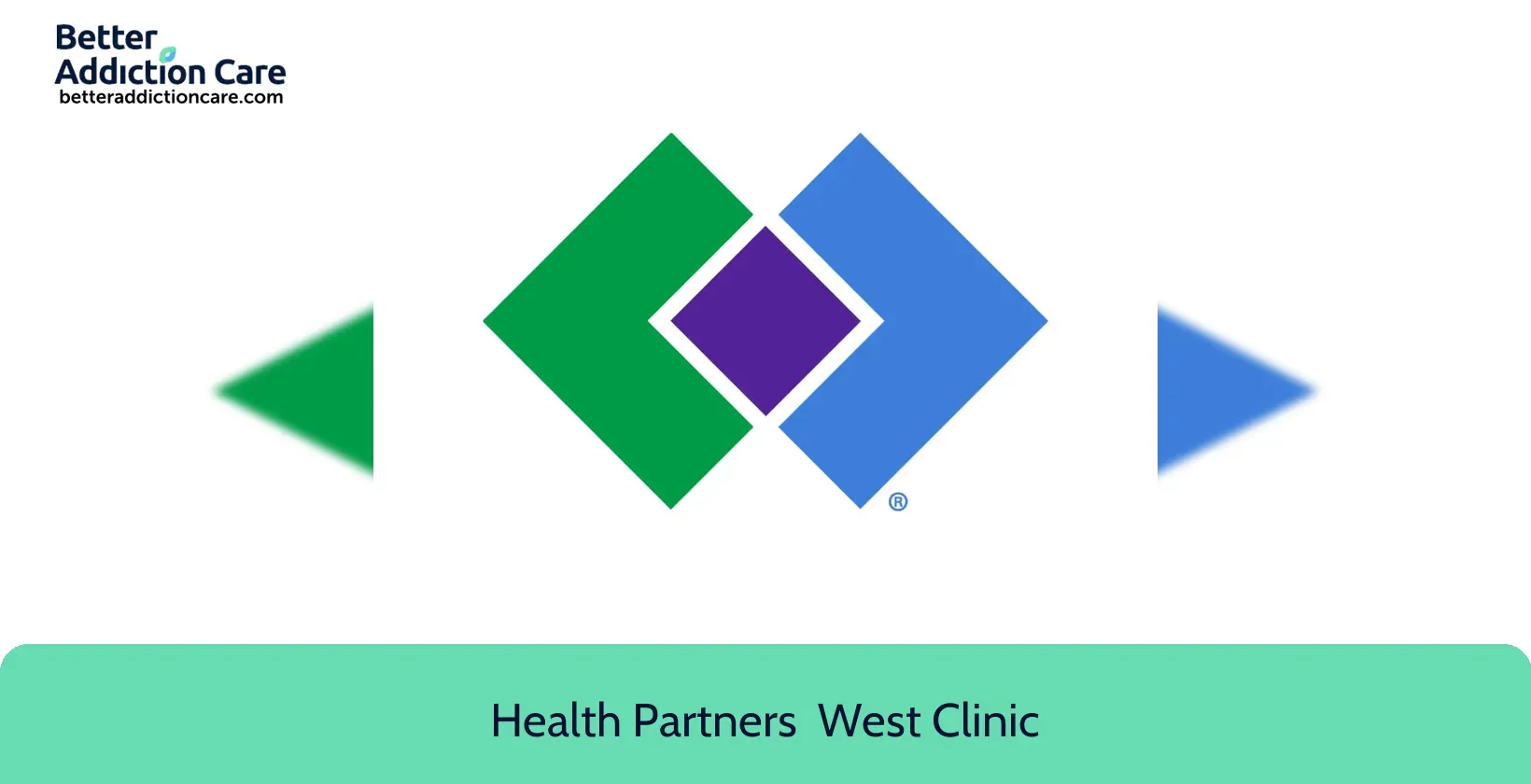Health Partners - West Clinic - Behavioral Health Department
Overview
Health Partners - West Clinic - Behavioral Health Department is a mental health treatment center for people seeking treatment near Hennepin County. As part of their treatment modalities for recovery, Health Partners - West Clinic - Behavioral Health Department provides couples/family therapy, integrated mental and substance use disorder treatment, and telemedicine/telehealth therapy during treatment. Health Partners - West Clinic - Behavioral Health Department is located in Minneapolis, Minnesota, accepting cash or self-payment for treatment.
Health Partners - West Clinic - Behavioral Health Department at a Glance
Payment Options
- Cash or self-payment
- Medicaid
- Medicare
- State-financed health insurance plan other than Medicaid
- Private health insurance
Assessments
- Screening for tobacco use
- Comprehensive mental health assessment
- Comprehensive substance use assessment
Age Groups
- Children/adolescents
- Young adults
- Adults
- Seniors
Operation
- Private non-profit organization
Highlights About Health Partners - West Clinic - Behavioral Health Department
6.59/10
With an overall rating of 6.59/10, this facility has following balanced range of services. Alcohol Rehabilitation: 8.00/10, Drug Rehab and Detox: 6.00/10, Insurance and Payments: 6.00/10, Treatment Options: 6.36/10.-
Alcohol Rehabilitation 8.00
-
Treatment Options 6.36
-
Drug Rehab and Detox 6.00
-
Insurance and Payments 6.00
Treatment At Health Partners - West Clinic - Behavioral Health Department
Treatment Conditions
- Alcoholism
- Mental health treatment
- Substance use treatment
- Co-occurring Disorders
Care Levels
- Outpatient
Treatment Modalities
- Couples/family therapy
- Integrated Mental and Substance Use Disorder treatment
- Telemedicine/telehealth therapy
- Eye Movement Desensitization and Reprocessing therapy
Ancillary Services
Additional Services
- Pharmacotherapies administered during treatment
- HIV testing
Contact Information
Read our Most Recent Article About Drug Addiction
DISCLAIMER: The facility name, logo and brand are the property and registered trademarks of Health Partners - West Clinic - Behavioral Health Department, and are being used for identification and informational purposes only. Use of these names, logos and brands shall not imply endorsement. BetterAddictionCare.com is not affiliated with or sponsored by Health Partners - West Clinic - Behavioral Health Department.
